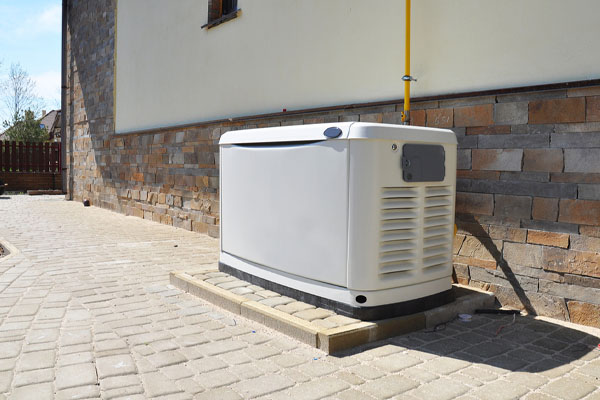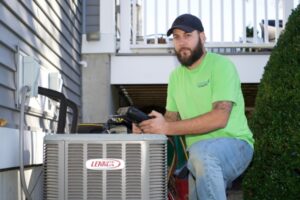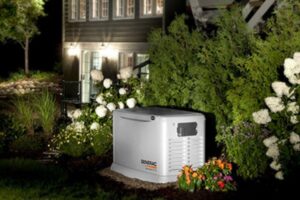How Does a Generator Work?

Contents
While we’ve made significant strides in ensuring steady electricity access, even the most advanced power systems aren’t foolproof. From unforeseen equipment breakdowns and accidental damages during construction to extreme weather events and heightened power demand, outages persist. This has spurred a growing dependence on generators, especially during blackouts. Moreover, in regions beyond the grid’s reach, generators are often the only power source. Yet, many wonder, “How does a generator work?”. Let’s delve into this fascinating world.
Demystifying the Standby Generator
Often known as standby, backup, or on-demand generators, these devices are specifically designed to transform mechanical energy into electrical energy, powering entire buildings when required. Beyond homes, generators also play pivotal roles in the operation of trains, ships, planes, and cars. In several places, they’re the primary power source.
At the heart of a generator lies the principle of electromagnetic induction. Encased within it, you’ll find a rotating copper conductor coil nestled between a U-shaped magnet. This coil, combined with its metallic core, forms the armature, tethered to a mechanical energy source, typically an engine. The rotation of this armature is what powers up the generator, with the engine fueled by sources ranging from propane and natural gas to diesel and renewable energies.
As the coil moves, it disrupts the magnetic field established by the magnet’s poles. This disturbance stirs up the electrons inside the conductor, prompting the emergence of an electric current.
The generator’s alternator or generating unit is responsible for crafting the alternating current (AC) – a consistent and dependable form of power akin to what our grids provide. This stability in AC ensures that even sensitive devices, like computers, air conditioners, or medical apparatus, receive undisturbed power.
Now, generator sizes can differ significantly. Among the behemoths in the generator family are the liquid-cooled models. Equipped with a pump, they circulate coolant, while an accompanying fan reduces the coolant’s temperature. For regions grappling with heat and humidity, these generators are the go-to option, ensuring the system remains cool and efficient.
Understanding a Whole-House Generator’s Power Potential
The energy production capacity of a generator is intrinsically linked to its engine size. Simply put, bigger engines enable generators to churn out more power, suitable for larger spaces or even multiple buildings. Typically, a generator’s output is denoted in Watts (W) or kilowatts (kW).
To understand this better, consider the equation for Watts: Volts multiplied by Amps. For instance, a 10kW generator delivering 240 Volts can offer around 41.67 or approximately 42 amps. This capacity can simultaneously power a 1200W refrigerator, a 1000W sump pump, a 1000W microwave, a 500W furnace fan, and ten light circuits amassing 1000W. Additionally, smaller gadgets like laptops, desktops, and radios can tap into this power, given their energy needs.
Why Should You Consider an On-Demand Generator?

Above all, the primary allure of a standby generator lies in its ability to guarantee uninterrupted power, especially during unanticipated outages. Given the unpredictable nature of power cuts, particularly in regions with inconsistent electricity supply, having a generator becomes a security blanket. It’s indispensable for businesses and vital establishments, including but not limited to pharmacies, production units, hospitals, and health clinics.
In crises, like natural catastrophes, standby generators prove invaluable. Medical professionals and emergency responders lean on them for more than just illumination—they empower essential medical devices, facilitate rescue operations, and drive crucial services.
Generators further come equipped with an instant activation feature, springing to action the moment a power outage strikes. This continuous power flow ensures appliances and systems remain operational, safeguarding against potential losses. For instance, perishable items like food and medicine remain preserved, minimizing waste and staving off contamination. For the growing remote workforce, this means no work disruptions. Plus, households maintain their cozy ambiance, with heating and cooling systems remaining unaffected.
Anatomy of a Backup Generator
1. Power Capacity: Generators come with a diverse range of power outputs, adaptable to varied requirements. Whether it’s a cozy home, a bustling office, a large building, or an expansive factory, there’s likely a generator tailored for the task.
2. Fuel Options: Generators are versatile when it comes to fuel sources. They can operate on petrol, LPG, natural gas, diesel, and even some renewable energy options. This flexibility ensures a broader consumer base can tap into their power-generating capabilities.
3. Noise Levels: While early generator models might remind one of roaring dinosaurs, modern iterations have evolved significantly. Many of today’s models boast noise-mitigation technologies, making them suitable neighbors for schools, offices, zoos, hospitals, and more.
In Conclusion
Generators serve far beyond mere comfort and convenience; in many situations, they’re downright essential. With their robust stability, they’re the beacon of light (literally) when grid systems falter. Modern generators have stepped up in terms of safety, user-friendliness, enhanced design, and feature enrichment. Furthermore, top-tier brands promise longevity, assuring users of consistent power backup over extended periods.
However, like any significant investment, procuring a generator demands meticulous consideration. Assessing your power needs, understanding capacity, and identifying the right type is vital. If the options seem overwhelming, consider consulting a specialist. They can guide you in pinpointing a generator that aligns perfectly with your requirements.
Contact Columbus Energies for Your Standby Generator Needs

Columbus Energies delivers top-tier whole-house generator services in Rhode Island and Southern Massachusetts. Our crew consists of certified professionals who excel in various standby generator services – be it backup generator repairs, installations, or routine maintenance. We pride ourselves on delivering precise and punctual services for every assignment.
With Columbus Energies, you’re promised competitive rates for on-demand generator services. Our commitment is underscored by the reliability of our offerings, the warmth of our staff, and our dedication to transparent pricing. Your peace of mind is paramount; hence, we back our services with a firm guarantee. To explore our offerings, reach out to Columbus Energies today. We also provide complimentary in-home estimates.
Contact us now by calling (508) 674-1492 to speak to one of our home comfort specialists!









